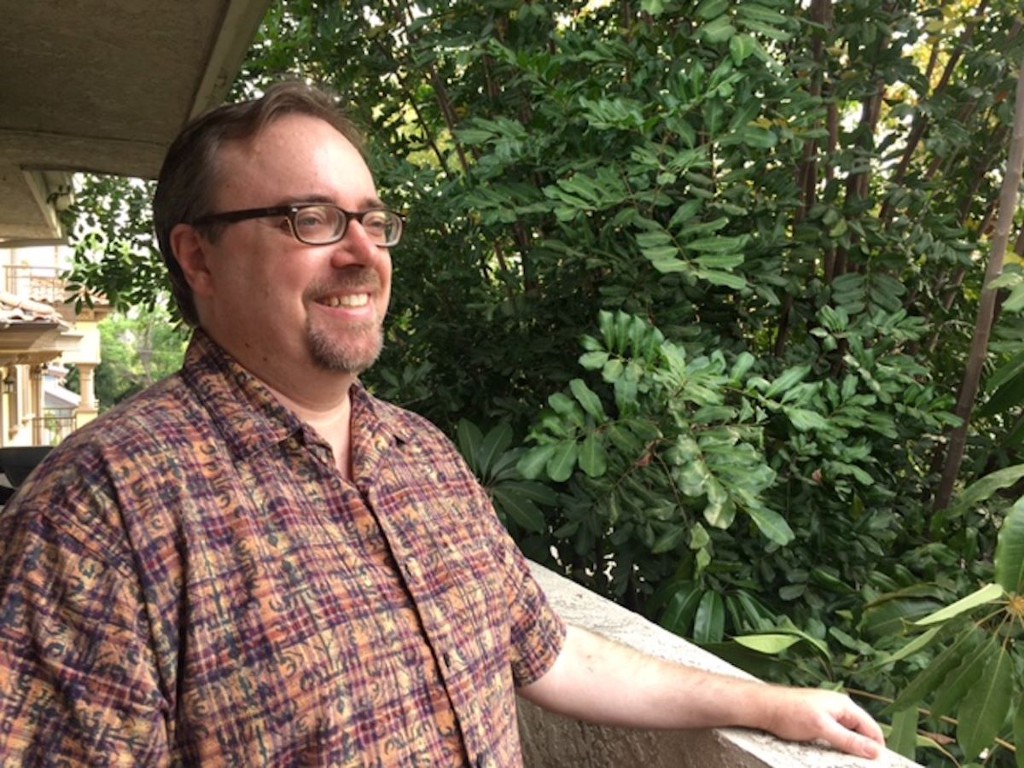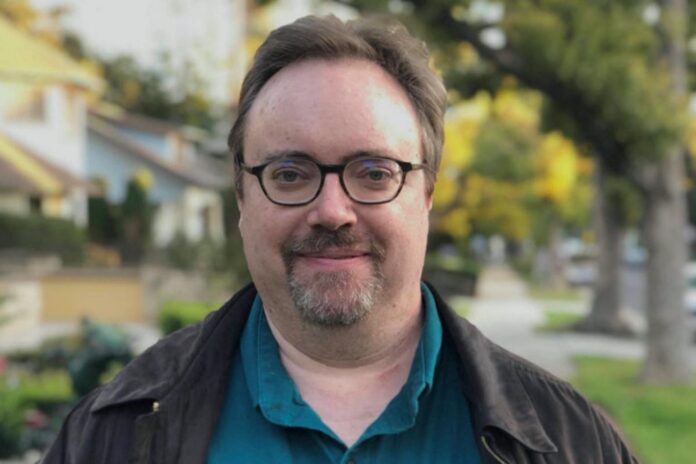Social Impact Heroes: Why & How Former NASA Programmer Michael Mossey Is Helping To Change Our World
Don’t commit so much to a business idea until you see if it pans out. When I was math tutoring I spent a lot of money on marketing and editing of materials (website, flyers, etc.) and no one ever responded. I only got business through the tutoring platforms that take a 25% cut. Eventually, I realized the math tutoring space was so crowded that no one was getting my message.
As part of my series about “individuals and organizations making an important social impact”, I had the pleasure of interviewing Michael Mossey.
Michael Mossey is a former scientific programmer for NASA where he worked in the JPL department, however, due to an injury which impeded him to continue working as a programmer. However, this allowed Michael to begin his other passion of teaching and mentoring. Now, Michael helps the future generation of programmers by mentoring them in computer science and preparing them for college as well as future jobs and careers that will need them!
Thank you so much for joining us in this interview series! Can you tell us a story about what brought you to this specific career path?
My current career path is computer science tutor. Due to an injury, I was unable to continue working as a programmer. I’ve always loved teaching and did it informally at my previous job, like teaching scientists how to use my code. So, I decided to take up tutoring with high school and middle school students, and I love it!
Can you share the most interesting story that happened to you since you began leading your company or organization?
There are fewer girls in programming than boys. But one of my best students ever was a girl! She is amazingly talented!
It has been said that our mistakes can be our greatest teachers. Can you share a story about the funniest mistake you made when you were first starting? Can you tell us what lesson you learned from that?
Even though I love computer science, I started with math tutoring. For some reason, it didn’t occur to me that there would be computer science work. I just didn’t even look for it. About 2 years into math tutoring, it hit me… why not look on the online platforms for computer science work? And sure enough, there was.
Can you describe how you or your organization is making a significant social impact?
I think a significant problem in our society is that people fear mistakes, rather than embracing them. Mistakes are a natural part of success, something you encounter along the way. I teach my students to embrace their mistakes.
Can you tell us a story about a particular individual who was impacted or helped by your cause?
One of my students started with me as a 9th grader. He had a desire to program but also felt low self-esteem about it. For a couple of years, he struggled and got down on himself. But there was a fire in him, deep inside where even he wasn’t quite sure he could feel it. Because he never gave up. Gradually he did more coding with me and then started inventing his own projects. He did a senior project with a sophisticated online graphing tool and got an A. It was a 180-degree turnaround. He went off to college in 2021 to major in computer science and got a programming internship in the summer of ‘22.
Are there three things the community/society/politicians can do to help you address the root of the problem you are trying to solve?
I would say the root problem I’m trying to solve is to get students to be more gentle with themselves and to see that learning happens best under comfortable conditions. This directly conflicts with a societal attitude, the “work hard” attitude. I think things will improve for our youngsters tremendously when they experience less pressure to work hard. They will actually learn more. I see this happening in some kinds of alternative schooling.
How do you define “Leadership”? Can you explain what you mean or give an example?
I define Leadership as a relationship with the people being led, a special kind of relationship in which everyone’s contributions are valued, people are given individual responsibility, and a “work smart” attitude is modeled for everyone by the leader.

What are your “5 things I wish someone told me when I first started” and why. Please share a story or example for each.
- Don’t commit so much to a business idea until you see if it pans out. When I was math tutoring I spent a lot of money on marketing and editing of materials (website, flyers, etc.) and no one ever responded. I only got business through the tutoring platforms that take a 25% cut. Eventually, I realized the math tutoring space was so crowded that no one was getting my message.
- Don’t be afraid to make mistakes. You have to start somewhere, right? I frequently made mistakes that my tutees caught. I had to learn to accept that.
- Get help from parents (i.e. people who know your market). I’m not a parent so I needed a marketer and editor who were in order to speak directly to my customer.
- Be flexible. Try different ideas. Stay open. The kind of tutoring I do has evolved five or six times since I started, getting closer all the time to the perfect business.
- Have an attitude of gratitude. It’s a trap to focus on everything that’s wrong or could be better. Yes, sometimes I need to pay attention to improvements. But if I focus only on what’s wrong I’ll never be happy.
You are a person of enormous influence. If you could inspire a movement that would bring the most amount of good to the most amount of people, what would that be? You never know what your idea can trigger. 🙂
The change I want to bring to the world is “don’t work so hard.” Because that’s more time to sense what really makes us happy. I’m quite inspired by the Dalai Lama, actually. He says, “My religion is happiness.” And he’s interested in how to decrease aggression. I think healing, emotional and spiritual, comes from paying more attention and working less hard.
Can you please give us your favorite “Life Lesson Quote”? Can you share how that was relevant to you in your life?
A teacher of body-centered mindfulness named Moshe Feldenkrais said the aim of his method was “To make the impossible possible, to make the possible easy, and to make the easy elegant.” He was speaking of mindful movements, like yoga, T’ai Chi, or dancing, but I think that quote expresses a paradigm shift that applies to teaching as well.
Is there a person in the world, or in the US with whom you would like to have a private breakfast or lunch with, and why? He or she might just see this, especially if we tag them. 🙂
For me, it would be the Dalai Lama.
How can our readers further follow your work online?
You can find me and more information about my work on my website.
This was very meaningful, thank you so much. We wish you only continued success on your great work!
Thank you for the opportunity!
Social Impact Heroes: Why & How Former NASA Programmer Michael Mossey Is Helping To Change Our… was originally published in Authority Magazine on Medium, where people are continuing the conversation by highlighting and responding to this story.


